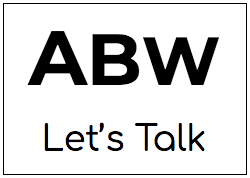Polio in Syria: New Epidemic, Same Obstacles
“In areas where rebels are more trusted than doctors, [convincing] reluctant citizens that the vaccine is safe” is no easy task, reports Tik Root in The Washington Post. What began as an isolated case in the northeastern province of Dier al-Zour has quickly become a public health crisis, with 35 additional cases confirmed by the Global Polio Eradication Initiative.
Implementing the vaccine is medically simple—two drops, three times—but infrastructurally complicated, since the Syrian conflict has seriously restricted UNICEF access. There are now more than 8,000 volunteers in the Polio Control Task Force, who risk their lives transporting and administering the vaccine to 1.4 million children.
While the vaccination campaign has been made more difficult by the conflict, most of the obstacles facing the volunteers are not unique: fear, misinformation, social stigma, religious backlash, and lack of trained volunteers.
Pulitzer Center grantee Esha Chhabra found that the slow, but ultimately highly effective, polio campaign in India faced many of the same stumbling blocks. For her project, India: Polio-Free and Looking Ahead at mHealth, Chhabra traveled to Aligarh to report on the successes and failures of the campaign.
One of the key factors in the initiative’s success, Chhabra writes, was the “more than 2 million vaccinators [who came] together to immunize India's 170 million children under the age of 5 against polio." These volunteers, most of them women, are paid only around one dollar a day to do this life-saving work. So why do they do it? Khalida Sherwani, one of the vaccinators, says that "if because of [her] efforts, even one child doesn't contract polio," she’ll know she’s done something invaluable.
Sherwani knows first-hand the difficulties that social and religious resistance poses to a successful vaccination campaign. She says that “before people used to play games with us, not give their kids the vaccine;” they wouldn’t listen to the health workers or private doctors. Eventually, Sherwani was able to get the local imam to make an announcement to encourage families to vaccinate their children. “If it [comes] from the mosque,” she says, “it [will] have greater impact.”
Efforts to thwart endemic polio in Nigeria have not been as favorable. Distrust of health care workers has obstructed vaccination efforts and even resulted in violent demonstrations.
For many years, Muslim clerics in the northern region of Nigeria have claimed that polio vaccines are part of an anti-Islamic, American conspiracy to control the population. According to Pulitzer Center grantee Ameto Akpe, whose project Nigeria: U.S. Dollars and Dubious Results documents the United States use of “soft power” in the region, reports that this idea “continues to be propagated by cultural, religious, and (some Nigerians say) political voices.” This impression has been detrimental to vaccination efforts and perpetuated the polio crisis in Nigeria.
But it’s not just the children who are suffering. In 2013, female health workers traveling to participate in a routine polio immunization were gunned down at a health center in Kano by Boko Haram militants. Boko Haram is an Islamic extremist group whose name means “Western education is sinful.”
So what makes some campaigns succeed where others fail? Local health workers seem to be at the heart of effective initiatives, as do cultural sensitivity and consideration of religious views. Akpe says that the only way “to change hearts and minds” moving forward is to “[understand] the true dynamics of the prevailing feelings.”
The most important thing, and the secret to India’s success according to Chhabra’s New York Times article, is learning from mistakes. Dr. Sunil Bahl, a technical advisor to the National Polio Surveillance Project, says that they’ve “refined this machine repeatedly. That’s what the polio campaign was about, learning, making changes, and re-tuning it.”




